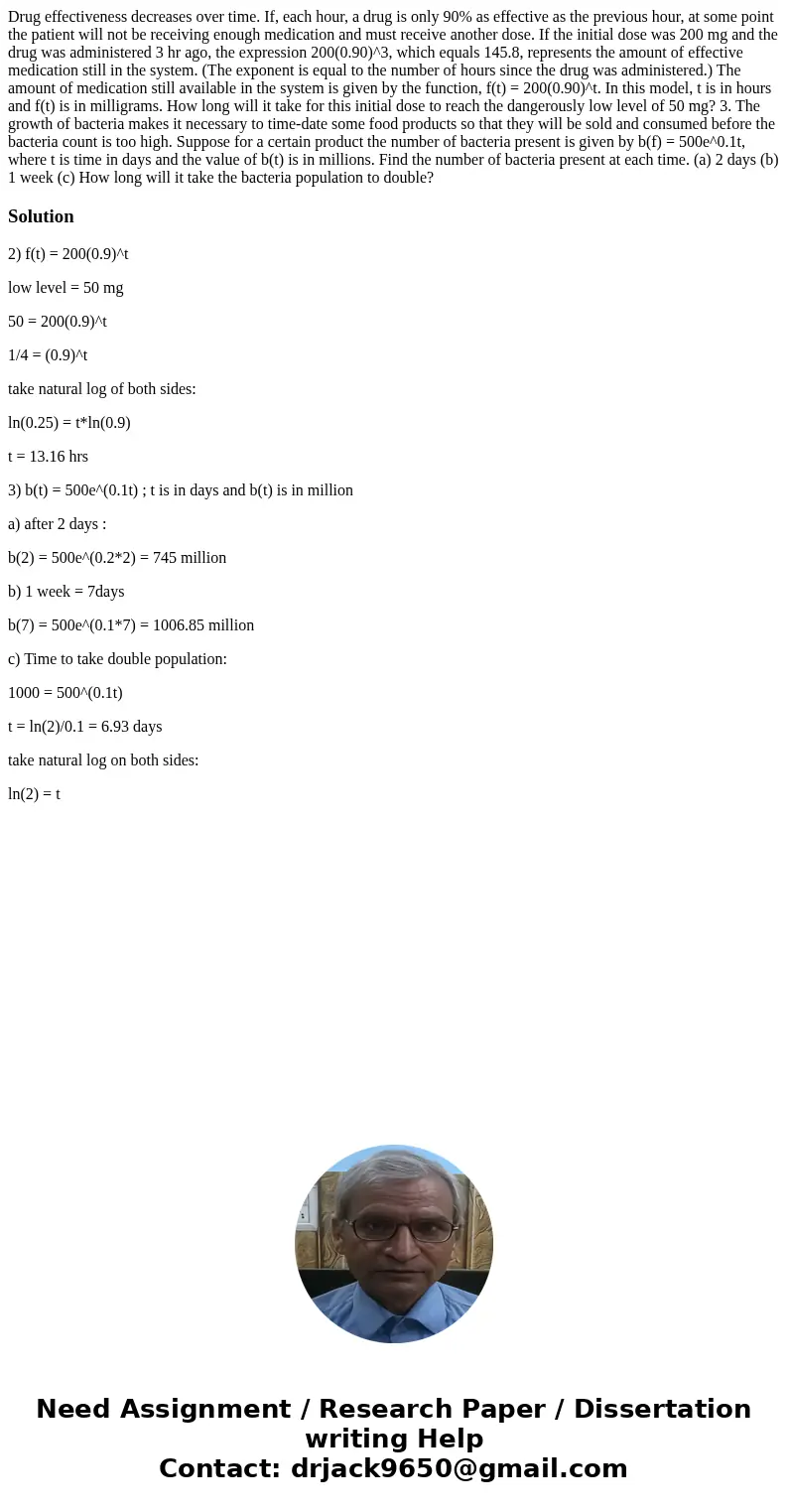Drug effectiveness decreases over time If each hour a drug i
Drug effectiveness decreases over time. If, each hour, a drug is only 90% as effective as the previous hour, at some point the patient will not be receiving enough medication and must receive another dose. If the initial dose was 200 mg and the drug was administered 3 hr ago, the expression 200(0.90)^3, which equals 145.8, represents the amount of effective medication still in the system. (The exponent is equal to the number of hours since the drug was administered.) The amount of medication still available in the system is given by the function, f(t) = 200(0.90)^t. In this model, t is in hours and f(t) is in milligrams. How long will it take for this initial dose to reach the dangerously low level of 50 mg? 3. The growth of bacteria makes it necessary to time-date some food products so that they will be sold and consumed before the bacteria count is too high. Suppose for a certain product the number of bacteria present is given by b(f) = 500e^0.1t, where t is time in days and the value of b(t) is in millions. Find the number of bacteria present at each time. (a) 2 days (b) 1 week (c) How long will it take the bacteria population to double?
Solution
2) f(t) = 200(0.9)^t
low level = 50 mg
50 = 200(0.9)^t
1/4 = (0.9)^t
take natural log of both sides:
ln(0.25) = t*ln(0.9)
t = 13.16 hrs
3) b(t) = 500e^(0.1t) ; t is in days and b(t) is in million
a) after 2 days :
b(2) = 500e^(0.2*2) = 745 million
b) 1 week = 7days
b(7) = 500e^(0.1*7) = 1006.85 million
c) Time to take double population:
1000 = 500^(0.1t)
t = ln(2)/0.1 = 6.93 days
take natural log on both sides:
ln(2) = t

 Homework Sourse
Homework Sourse